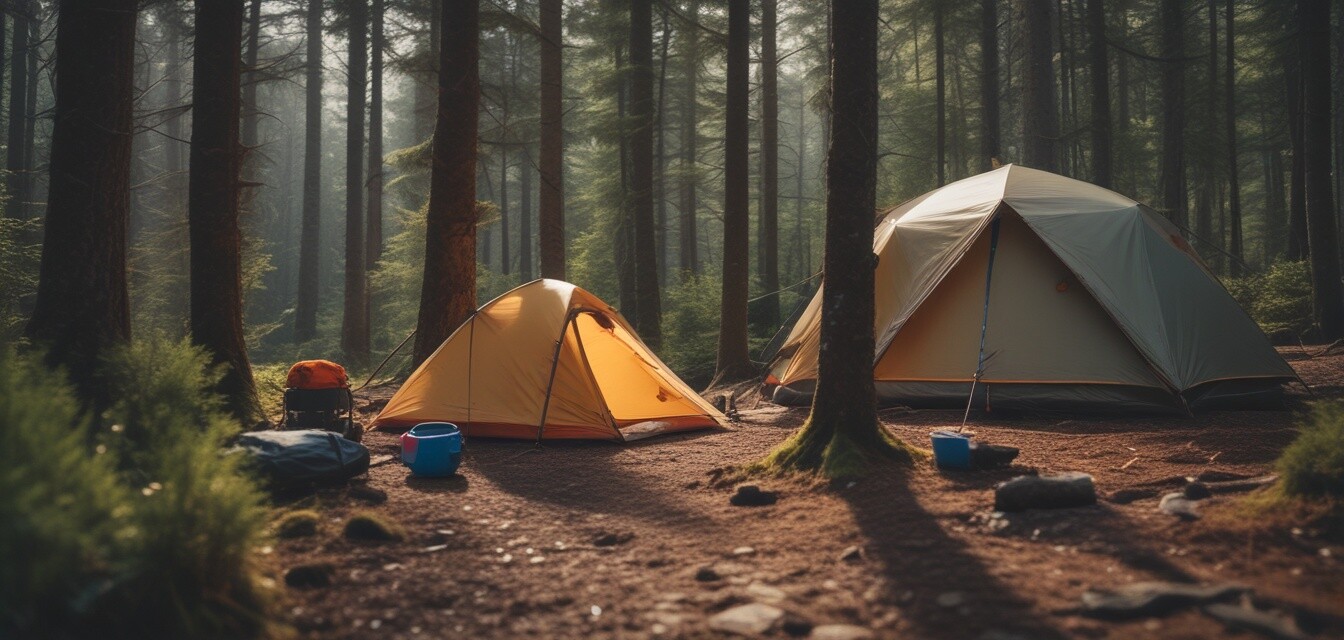
The best camping gear for solo adventurers
Camping solo can be a liberating experience, but to make the most of your outdoor adventure, having the right gear is essential. In this article, we will explore the best camping gear tailored for solo adventurers, focusing on lightweight, multifunctional equipment that meets individual needs.
Key takeaways
- Choose lightweight gear for easier transport.
- Opt for multifunctional products to save space.
- Consider your individual needs when selecting equipment.
- Safety should be prioritized in your gear selection.
- Budget wisely while ensuring quality in your purchases.
Understanding the needs of solo campers
Every solo camper has unique preferences, but there are common factors all should consider when selecting gear. The right camping equipment should provide comfort, safety, and functionality. Below, we outline some essential categories of gear for solo adventurers.
1. Tents and shelters
As a solo adventurer, your choice of tent is crucial. You need something light enough to carry but durable enough to withstand the elements. Here are key features to consider:
- Weight: Aim for a tent that weighs under 3 pounds.
- Space: Ensure you have enough room for yourself and gear.
- Setup: Look for easy setup designs, such as pop-up tents.
2. Sleeping gear
Getting a good night’s sleep is vital for your outdoor experience. Choosing the right sleeping gear can make all the difference. Here’s what to look for:
- Sleeping bags: Look for lightweight and compact sleeping bags rated for the weather conditions you'll face.
- Sleeping pads: A sleeping pad adds comfort and insulation, making it easier to sleep on the ground.
3. Cooking equipment
Cooking while camping can be fun and fulfilling. Here’s your checklist for cooking gear:
- Portable stove: Lightweight and compact models are perfect for solo cooking.
- Multi-tools: Choose tools that combine several functionalities to save space.
- Cookware: Consider lightweight pots and pans specifically designed for camping.
4. Safety and navigation tools
Safety should always be a priority for solo campers. Equip yourself with the necessary tools:
- First aid kit: Always carry a compact first aid kit tailored for your needs.
- Navigation devices: Consider GPS devices or compasses to help you navigate unfamiliar territory.
- Emergency beacon: This can be crucial for alerting help in emergencies.
5. Backpacks and carriers
Your backpack is your lifeline while solo camping. Below are key considerations:
- Capacity: Ensure it has adequate space for all your gear without being too bulky.
- Weight: Choose a lightweight backpack that doesn’t add unnecessary strain.
- Comfort: Look for padded straps and an ergonomic design to support your back during long hikes.
Comparison of gear categories
| Gear Category | Key Features | Recommended For |
|---|---|---|
| Tents | Lightweight, easy setup, durable | All solo campers |
| Sleeping Gear | Compact, good insulation, comfort | Comfort seekers |
| Cooking Equipment | Portable, multifunctional | Culinary enthusiasts |
| Safety Tools | Compact first aid, navigation | Safety-conscious campers |
| Backpacks | Lightweight, ergonomic | Long-distance hikers |
Additional tips for solo camping
Beginner tips
- Practice setting up your tent before you go.
- Check the weather ahead of time to ensure you’re prepared.
- Inform someone about your camping plans and your expected return time.
- Always carry extra food and water, just in case.
Conclusion
Camping solo can be an enriching experience with the right gear. Focus on lightweight and multifunctional products that meet your individual needs, and don’t forget about safety. With the information provided in this guide, you’ll be well on your way to enjoying the great outdoors confidently. For more insights on choosing the best equipment, check out our Camping Buying Guides.
Pros
- Freedom to explore at your own pace.
- Opportunity for personal reflection and connection to nature.
- Ability to customize your camping experience.
Cons
- Increased safety risks without a companion.
- Requires effective planning for food and equipment.
- More challenging to handle emergencies alone.